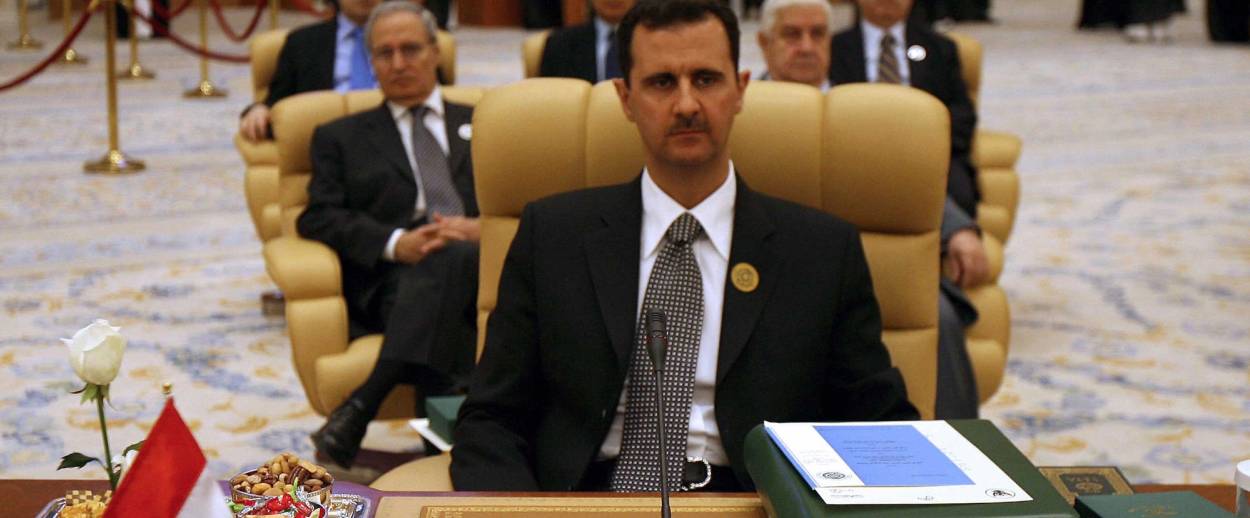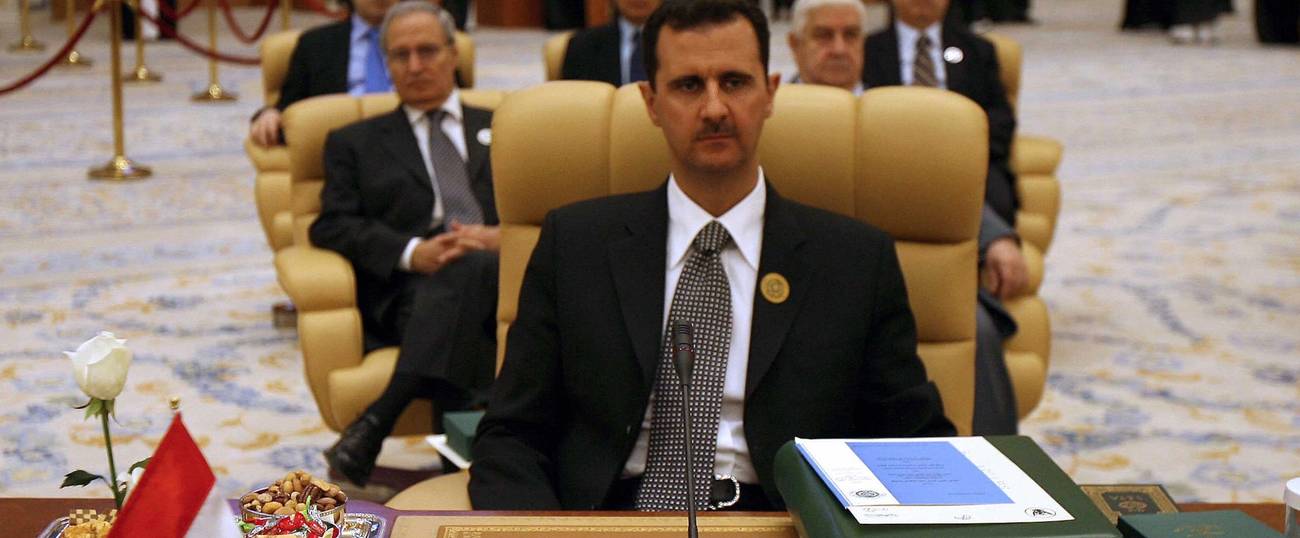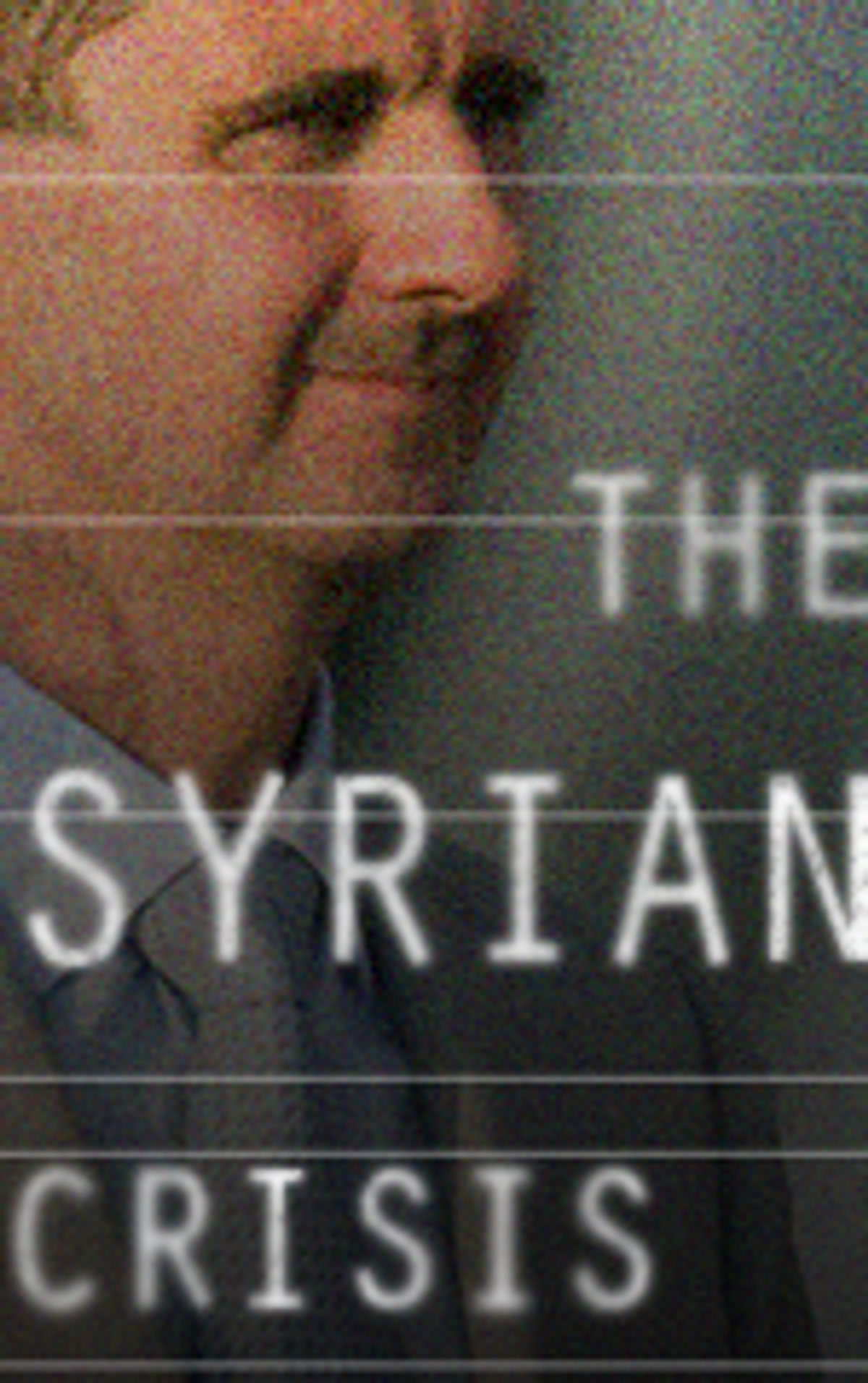Why Bashar al-Assad, the ‘Teflon Don’ of the Middle East, Can’t Be Touched
Barack Obama’s Syrian endgame and the new alliances that are shaping it




John Gotti may have once held the title, but the late Gambino crime family boss had nothing on the “Teflon Don” of the Middle East, Bashar Assad. Had Gotti lived to see it, he would be astounded by how easily the two-bit head of a Syrian crime family is getting away with mass murder.
Remarkably, five years after the outbreak of the uprising against him, in which over 450,000 people have been shot, bombed, and gassed for the crime of not wanting to be ruled by a genocidal dictator, Assad is being cheered by many in the West as a protector of endangered minority groups—not to mention as a savior of archeological artifacts. “Hooray,” wrote London Mayor Boris Johnson following the assault by Assad’s allies that retook the city of Palmyra, “Bravo—and keep going.” Sure, Johnson said—mainly for reasons of etiquette—Assad is a monster, a killer and a dictator who, like his father, has ruled through torture, violence and terror, but let’s not have that get in the way of cheering him on.

Not only is Assad being lauded as the spearhead of the fight against jihadist terrorism, but the Obama Administration has been notably lax recently in repeating its insistence that he leave power. Behind the scenes, administration heavies like Rob Malley, President Barack Obama’s favorite regional troubleshooter; Brett McGurk; and others have been moving heaven and earth to ensure that the regime prevails militarily in Aleppo and elsewhere on the Syrian battlefield. In fact, as Russia and its allies on the ground appear to be mobilizing for a push on Aleppo, the administration’s response has been to give them full cover, falsely claiming that the city is being held primarily by the Nusra Front. Then on Monday, State Department spokesman John Kirby practically advised rebel groups in Aleppo to move out of their positions in the city lest they “get hurt.”
And if the Assad regime is now seen as a bulwark against ISIS and the Nusra front, the administration makes no bones about the fact that there can’t be an Assad regime without Assad. Commenting on Sec. of State John Kerry’s recent visit to Moscow, Russian Deputy Foreign Minister Sergei Ryabkov was quoted saying that Russia “found understanding in Washington” that “the future of Syria’s president should not be on the agenda at this stage.”
Recent reporting in the Arabic press claims that Malley has been negotiating with Russia’s special presidential envoy, Alexander Lavrentiev, over the shape of a political settlement in Syria. Malley and Lavrentiev have reportedly been discussing a plan that draws somewhat on the Lebanese model of power sharing, whereby Assad and whatever amenable “opposition” would “share” executive, security, legislative, and judicial authority. U.N. Special Envoy Staffan De Mistura explained what such an arrangement might look like in a surprise proposal to the opposition delegation in Geneva. Assad would remain as president, while appointing three vice presidents picked by the opposition who would have unspecified authority—presumably, to do whatever Assad told them, at the risk of their lives. Malley reportedly briefed President Obama on his talks with the Russians, which the president may have carried with him on his recent tour to the Gulf.
While Obama’s Syria policy might appear like a response to recent events, it is continuous with a long-standing White House position. Proposals that would leave Assad as president, but with supposedly limited authorities, have been regularly floated since 2012, the year of Obama’s famous red line. By 2013, the White House was already publicizing its regrets about having ever called for Assad to step aside and was briefing media surrogates that it was “not seeking to help the opposition win a civil war.” In 2014, after being briefed by the White House, two pillars of what’s left of the American foreign-policy establishment, Leslie Gelb and Frank Wisner, called for “sharply and publicly” redefining U.S. objectives, arguing for collaborating with the Assad regime against “jihadi extremism.” Gelb and Wisner relayed the view—presumably shared by the White House—that the U.S. president, having been “too quick off the mark and too absolute” in calling for Assad’s removal, “perhaps now” was “prepared to entertain a transitional working arrangement,” which has since been formalized by the series of Geneva conferences on Syria.
John Gotti could only marvel at how willing the Obama Administration and its claque in the press have been to ignore the river of blood that Assad continues to leave in his wake, which would appall even the most hardened Mafia boss. Nor is Assad’s blood lust confined to Syrian civilians who oppose his rule—he murders plenty of other people too, including Americans. Shortly after taking power, Assad began directing jihadists from the world over via Syria to Iraq in order to kill American soldiers following the 2003 U.S. invasion of that country. Assad’s intelligence services directed the same network to do hits and detonate bombs in Jordan and Lebanon. The bombings and murders in Lebanon continued steadily through 2013, killing or maiming over a dozen intended targets (to say nothing of the innocent bystanders). Of those, 10 were Christians—that’s not counting a series of random bombings specifically in Christian areas aimed at sending a warning to that community. In 2012 Assad tried to use a Lebanese Christian associate, Michel Samaha, to plant a series of bombs targeting both Christian and Sunni Muslim targets to raise sectarian tensions in Lebanon and then pin the bombings on jihadists. Samaha got caught, but the intelligence chief who uncovered the plot got blown up, in a scene that would have made Francis Ford Coppola smile.
Assad is hardly your run-of-the mill hitman. Where his father, an old-school boss, was known to dissolve his victims’ limbs in acid, Bashar gassed thousands of people. And he did it repeatedly over a several months while the United States watched—and did nothing. By then, Assad understood he could get away with pretty much anything, as the Obama Administration wanted to keep out of Syria at all costs. When he pushed the envelope further with a major chemical attack in August 2013, everyone thought that was it. But Obama, with help from Vladimir Putin, got him off the hook with a sweet deal that allowed him to keep on killing people—but with chlorine gas, instead of sarin.
Assad has been getting away with murder for years. Only now, he is regarded as a critical partner against terrorism—even as he partners with Hezbollah on the battlefield. Not only that, he is a hero for “liberating” the ancient ruins of Palmyra. “The victory of Assad is a victory for archaeology,” Boris Johnson gushed. Sure, his goons chopped off the genitalia of a 13-year-old boy and sent his bloated, scarred, and bruised body to his parents, but at least he believes in a “degree of civilization.”
And now, with near half a million dead, millions of refugees, many deliberately ethnically cleansed, he gets to be part of a “political transition” in Syria and help draft a new “constitution” and run in “elections” that he will organize. As per the principles of U.N. envoy De Mistura, there will be donor conferences to pay for the reconstruction of Syria, which Assad and his friends bombed to rubble, while the world also pays for the millions of refugees lucky enough not to be buried under that rubble. And since Assad will be part of Syria’s indefinite “transition,” few if any of those refugees will be able or willing to ever return home.
Let John Gotti top that. The most he could hope for, aside from the front page of the Daily News or the cover of People magazine, was to get cheered at a Fourth of July block party in Queens. But Obama has business that’s important with Ali Khamenei. He doesn’t want it disturbed. And since Assad is backed by Obama’s deal partners in Tehran, he shouldn’t be touched.
***
Like this article? Sign up for our Daily Digest to get Tablet Magazine’s new content in your inbox each morning.
Tony Badran is Tablet’s news editor and Levant analyst.